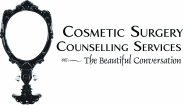My own story is that of being a psychotherapist with a passionate interest in cosmetic patient safety. In order to make this industry safer for patients, I have had to attend some difficult meetings and often argue to get my point across. I have often been quite shocked at the lack of regulation in the industry. I am pleased to say that new training qualifications are now being delivered and these include trainings for practitioners to understand patients better. My stories are not the same as your story but all stories are equally welcome here. I just want to let the public and the professional world know that we have come a long way in improving patient safety but there is much more work to be done. It takes courage, strength and determination to have our patient voices heard but the struggle will be worth it for the next patients still to come.
I have spent a life-time facing body image and weight issues. These struggles don't finish. They continue. However, it must be understood that each person who faces these issues, faces them at varying degrees and have different ways to resolve them. Putting time and effort into making positive changes is my way of healing myself. It works for me, it may work for you too. Everyone is welcome to join this campaign and make the effort they wish to do at the level they feel comfortable with.
Sharing your journey, sharing your experience here with others is one way of helping. Mental health issues range from severe mental health disorders to simple every day body image issues but neither end of the spectrum receives enough support from either the NHS or other support groups. Let's do something about that. Body image issues are not trivial and should not be ignored so let's build our own network so that nobody falls through the net again.
We are always looking for volunteers to help our campaign. You can offer a few hours of your time or more if you have it to spare. The work is always exciting and interesting. You can share your story online or in a live support group. You can be-friend someone or accompany someone to a consultation. There are many ways to be productive so JOIN IN now. Click here and let me know how you wish to help:



 RSS Feed
RSS Feed